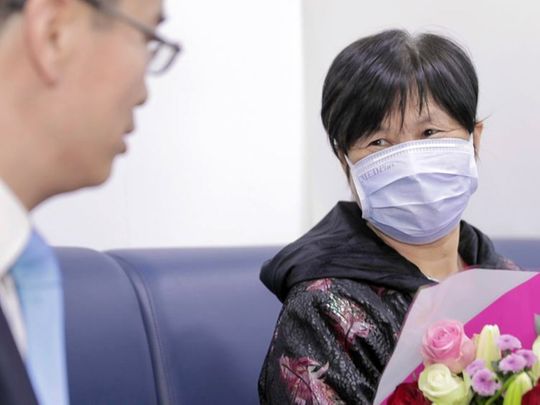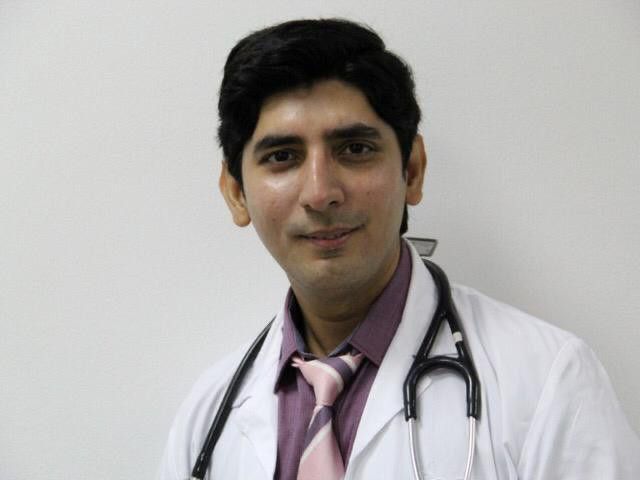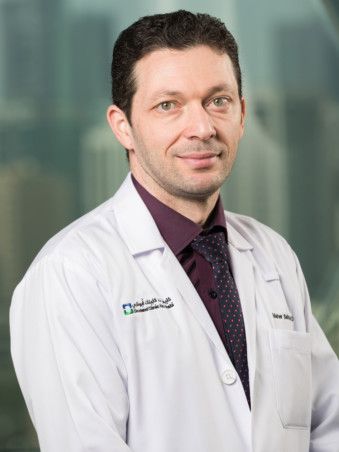
Abu Dhabi: It may appear bleak at the moment, with the number of confirmed COVID-19 cases rising on a daily basis. The UAE itself announced 72 new cases on Friday to total 405 cases in the country with 55 recoveries and two deaths.
But doctors have offered hope, saying the number of recoveries each day could also increase soon, as long as people maintain social distancing and take hygiene precautions.
“Recovery can take a couple of weeks, or more in some cases, whereas becoming infected is significantly easier, given how contagious this virus is. But data from parts of the world with significant outbreaks has shown that the number of daily recoveries does increase as time goes on,” said Dr Maher Balkis, associate staff physician at the Cleveland Clinic Abu Dhabi’s Infectious Diseases department, told Gulf News.
Dr Faisal Dalvi, internal medicine specialist at Burjeel Hospital in Abu Dhabi, agreed.
“We will see positive news, as long as people understand the importance of precautionary measures like social distancing, and comply with them. It takes a while for people to recover, but the rate of recoveries can eclipse the infection rate if people take measures to protect themselves and prevent infections,” he said.

In China, where the virus originated, the epidemic peaked between late January and early February, and the rate of new cases decreased substantially by early March. Of course, this required near-draconian measures, including a complete lockdown of the Hubei province epicentre.
The UAE has only noted a marked increase in case numbers this week. But there have also been 52 recoveries till date, representing 15 per cent of those infected. Two people have succumbed to the illness, but this is only 0.6 per cent of the number of people infected.
Scientists now know that the novel coronavirus responsible for COVID-19 – the SARS-CoV-2 – spreads easily, and one infected person can infect 2.2 others. Typical symptoms, which appear within two to 14 days of being infected, include sore throat, high fever, dry cough, muscle aches and shortness of breath. In more severe cases, patients experience trouble breathing, persistent pain or pressure in the chest, confusion and bluish lips or face.
“Recovery, on the other hand, depends on a patient’s general health [and immunity], age and comorbidities, varying from [a full resolution of symptoms] to death,” explained Dr Sandeep Pargi, pulmonologist at Aster Hospital, Mankhool.
Is there treatment for COVID-19?
Around the world, research is underway to develop a vaccine against the novel coronavirus, or develop medication to effectively treat COVID-19. At least four institutions are testing potential vaccines on animals, and a Boston-based firm is set to begin human testing imminently.
But for now, there is no vaccine, and international consensus on drugs licensed to treat COVID-19 either. In the UAE, a medicine to treat malaria, known as chloroquine, as well as a lopinavir/ritonavir, which prevents and treats HIV, is used.
“Current therapies are designed to support a person’s immune system, helping it fight off the infection. [The] antiviral medications are used based on experience with coronaviruses like SARS and MERS, but there is still no consensus on standard treatment for COVID-19,” Dr Balkis explained.
A patient is considered cured when they no longer display any symptoms, such as fever or coughing, and when two consecutive PCR tests (polymerase chain reaction test for the qualitative detection of SARS-CoV-2 nucleic acid in upper and lower respiratory specimens) taken 48 hours apart are negative.
Treatment in the UAE
So in the face of a highly contagious virus and no available vaccines, social distancing and isolation appear to present the best community protection.
“The UAE has taken a proactive approach to contain the spread of COVID-19 and ensure that the infected receive proper medical care. Governmental guidelines require that all patients who test positive are hospitalised, no matter their symptoms. This is to protect the community and ensure that should their case worse, there are able to receive any care they need as quickly as possible,” Dr Balkis said.
Patients are also placed in isolation in the UAE to prevent the spread of the disease.
In cases where a person is suspected to be infected but is displaying no symptoms, testing has to be undertaken, along with strict quarantine for 14 days and retesting, Dr Pargi said.
Is there need for concern?
Fortunately, despite a rise as of late in the number of infections in the UAE, doctors expect most cases to be mild.
“Internationally, 80 per cent of cases are mild. Only 14 per cent of people are severely affected and develop pneumonia, and only six per cent turn critical, with multi-organ failure and a risk of sepsis,” Dr Dalvi said.

Dr Balkis also reassured residents.
“Most people have no or very mild symptoms, and the UAE has reflected this. It is [also] important to note that there have been relatively few cases of COVID-19 in the UAE, and that even at a global level, there have been less than 500,000 cases. If people abide by guidelines on social distancing and stay in their homes, the world will be successful in containing the spread of the disease,” he said.
Large-scale disinfection and sterilisation initiatives are also being undertaken in the UAE, and in the nationwide manner that has been recommended by the World Health organisation for strategies to combat the coronavirus.
But what about re-infection?
But as people remain hopeful about recoveries, they are also concerned about reinfection, which could further prolong the duration of social distancing required.
“Traditionally, a person should develop immunity against the virus. But this is a new strain of virus, and we have to wait for more studies to come to a conclusion,” Dr Pargi explained.
Reinfections have been reported in China, Japan and South Korea, but there is also speculation that retesting results could be false, or that symptoms had remained dormant only to exacerbated later.
This means that the wisdom stands behind social distancing and hand hygiene for the moment..
“A preliminary animal study in China found that some recoveries may induce an immunity, but we do not know how long that immunity lasts. We also do not know whether someone who has immunity could be a carrier of the disease, [thus exposing] others. As a result, it is imperative that all residents abide by the current advice to stay home as much as possible, practise social distancing and wash hands regularly,” Dr Balkis said.
Dr Dalvi said we can expect the containment measures to be lifted eventually, as authorities in the UAE ensure that the risk of infection has actually fallen and that all infected patients can be treated. This would include access to medical professionals for all patients, as well as enough hospital beds, medication and ventilators used to ease breathing dififculties
“But it will be gradual, and until that happens, the best thing we can do is stay home and maintain distancing,” he said.








